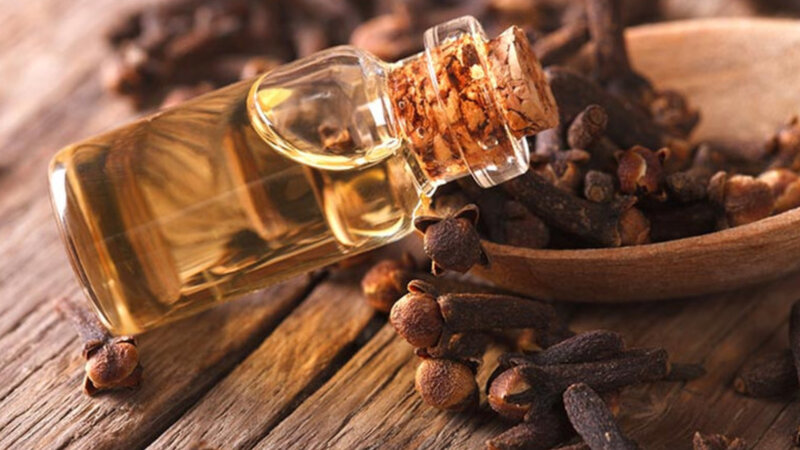Laung Benefits – How Does Clove Improve Your Health?
Clove, also known as Laung, originates from Indonesia and possesses a delightful aroma. This aromatic herb offers numerous health advantages, including alleviating symptoms such as nausea, vomiting, stomach discomfort, muscle cramps, toothaches, and various other ailments. Furthermore, it supports digestive well-being.
In addition to its medicinal properties, this age-old culinary spice is widely utilized in cuisines across the globe. Beyond its culinary applications, cloves are employed to add flavor to certain wines and alcoholic beverages.
They are known for their strong fragrance, warm flavor, and sharp taste. When it comes to medicinal usage, dried flower buds and clove oil are the primary forms utilized.
Native Region Of Clove
Clove, or Laung, is native to the Maluku Islands in Indonesia. These islands, also known as the Spice Islands, are located in the eastern part of the country.
The warm and humid climate of this region provides an ideal environment for the growth and cultivation of clove trees. Over time, clove cultivation has expanded to other regions with suitable climates, such as Madagascar, Tanzania, Sri Lanka, and India. However, Indonesia remains the primary native region and the largest producer of cloves in the world.
Healing Properties Of Clove
Clove, or Laung, possesses various healing properties that have been recognized and utilized for centuries. Some of its notable healing properties include:
1. Analgesic: Clove exhibits analgesic properties, making it effective in relieving pain, including toothaches, headaches, and muscle aches.
2. Antimicrobial: Clove has potent antimicrobial properties due to the presence of compounds like eugenol. It can help combat bacterial and fungal infections, making it useful in oral health and preventing certain skin infections.
3. Anti-inflammatory: The active compounds in cloves have anti-inflammatory effects, which can help reduce inflammation in the body. This property is beneficial in alleviating symptoms of inflammatory conditions, such as arthritis.
4. Digestive Aid: Clove promotes digestive health by stimulating the production of digestive enzymes, improving digestion, and reducing digestive discomforts like bloating and gas.
5. Antioxidant: Clove is rich in antioxidants that help protect the body against oxidative stress and damage caused by free radicals. Antioxidants play a crucial role in maintaining overall health and reducing the risk of chronic diseases.
6. Antiemetic: Clove has been traditionally used to alleviate nausea and vomiting. It can provide relief in cases of motion sickness, morning sickness during pregnancy, and postoperative nausea.
7. Dental Health: Clove is commonly used in oral care products due to its analgesic, antimicrobial, and numbing properties. It helps relieve toothaches, fights oral infections, and freshens breath.
It’s important to note that while clove has these healing properties, it is always recommended to consult with a healthcare professional for specific medical advice or treatment.
Benefits Of Cloves
Cloves offer a range of benefits due to their rich nutritional profile and active compounds. Some key benefits of cloves include:
1. Digestive Health: Cloves can aid in digestion by stimulating the production of digestive enzymes, improving nutrient absorption, and reducing digestive issues such as bloating and gas.
2. Oral Health: Cloves possess antimicrobial properties that help combat bacteria and prevent oral infections. They are commonly used in oral care products to freshen breath, relieve toothaches, and promote overall dental health.
3. Anti-inflammatory Effects: The active compounds in cloves, particularly eugenol, have anti-inflammatory properties. They can help reduce inflammation in the body and provide relief from inflammatory conditions such as arthritis.
4. Antioxidant Power: Cloves are rich in antioxidants, which help protect the body against oxidative stress and free radical damage. Antioxidants play a crucial role in maintaining overall health and reducing the risk of chronic diseases.
5. Pain Relief: Cloves have analgesic properties and can provide relief from pain, including toothaches, headaches, muscle aches, and joint pain.
6. Nausea and Vomiting Relief: Cloves have been traditionally used to alleviate nausea and vomiting. They can be helpful in managing symptoms of motion sickness, morning sickness during pregnancy, and postoperative nausea.
7. Respiratory Health: Cloves have expectorant properties that help loosen phlegm and mucus, making it easier to expel. They can be beneficial in relieving respiratory conditions such as coughs, colds, and bronchitis.
8. Blood Sugar Regulation: Some research suggests that cloves may help regulate blood sugar levels by improving insulin sensitivity. However, further studies are needed to establish its effectiveness in managing diabetes.
9. Wound Healing: Clove oil has antimicrobial and pain-relieving properties that can aid in wound healing. It can help prevent infection and promote faster recovery.
10. Boosting Immunity: The antioxidant and antimicrobial properties of cloves contribute to a strengthened immune system, protecting the body against infections and illnesses.
While cloves offer these benefits, it’s important to consume them in moderation as part of a balanced diet. If you have any specific health concerns, it’s advisable to consult with a healthcare professional for personalized advice.
20 Common Uses of Cloves
Here are 20 common uses of cloves
1. Culinary Spice: Cloves are widely used as a spice in cooking, adding flavor and aroma to various dishes, including soups, stews, curries, and baked goods.
2. Aromatic Tea: Cloves can be used to make a flavorful and aromatic tea by steeping them in hot water.
3. Mulled Drinks: Cloves are often included in recipes for mulled wine, cider, and other warm, spiced beverages.
4. Pickling: Whole cloves are used in pickling to add flavor and preserve fruits, vegetables, and condiments.
5. Marinades and Rubs: Cloves are commonly included in marinades and spice rubs for meats, enhancing their taste and aroma.
6. Baking: Ground cloves are used in baking recipes for cakes, cookies, bread, and other desserts, providing a warm and spicy flavor.
7. Curry Powders and Spice Blends: Cloves are a common ingredient in curry powders and spice blends, adding depth and complexity to the flavor profiles.
8. Sausages and Meat Products: Cloves are used in the production of sausages and other meat products for their flavoring properties.
9. Preserves and Jams: Cloves can be added to preserves, jams, and chutneys to enhance the taste and impart a unique spiciness.
10. Herbal Infusions and Tinctures: Cloves are used in herbal medicine to make infusions and tinctures, extracting their medicinal properties.
11. Essential Oils: Clove essential oil is extracted from the buds and is utilized in aromatherapy, massage oils, and natural remedies.
12. Oral Health Products: Clove oil and powdered cloves are common ingredients in toothpaste, mouthwashes, and oral care products due to their antibacterial properties and freshening effect.
13. Potpourri and Sachets: Dried cloves are used in potpourri mixtures and sachets for their aromatic scent.
14. Home Fragrance: Clove oil can be added to diffusers or simmered in a pot with other spices to create a pleasant and comforting aroma in the home.
15. Medicinal Remedies: Cloves are utilized in traditional medicine for their various health benefits, including relieving pain, aiding digestion, and reducing inflammation.
16. Cigarettes and Tobacco Products: Clove cigarettes, also known as kreteks, contain ground cloves for their distinctive flavor.
17. Perfumes and Fragrances: The warm and spicy aroma of cloves is used in perfumes, colognes, and fragrances.
18. Herbal Soaps and Bath Products: Clove oil is incorporated into herbal soaps, bath oils, and bath salts for its fragrance and potential benefits to the skin.
19. Repellent and Pest Control: Clove oil can be used as a natural insect repellent and to deter pests in homes and gardens.
20. Floral Arrangements: Dried cloves can be incorporated into floral arrangements, wreaths, and crafts for their decorative appeal and scent.
These are just a few of the many uses of cloves, showcasing their versatility in culinary, medicinal, and aromatic applications.























